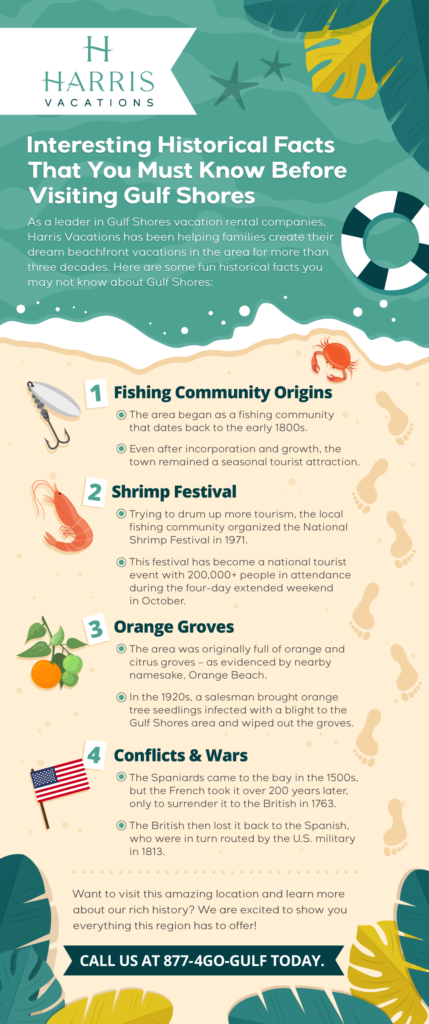Harris Vacations Staff Writer | March 1, 2023
The area began as a fishing community dating back to the early 1800s. The fishing and shellfish industries were the largest employers in the area until as recently as the 1970s. Shops, cafes, and restaurants sprang up, but the town would essentially be deserted during the winter and fall.
In 1971, the local fishing community organized the National Shrimp Festival to drum up business and bring in more visitors. The festival has now become a national tourist event, with upwards of 200,000 people in attendance over the four-day extended weekend every October. The festival now includes live music, art showings, and, of course, a lot of shrimp!
While fishing has a leading role in the region’s history, so does farming. Nearby Orange Beach is named in honor of the region’s orange and citrus groves. However, a salesman brought orange tree seedlings infected with a blight to the area in the 1920s and wiped out the groves.
In more than 100 years, the Mobile Bay area transferred hands four times. The bay was originally named after natives, including members of the Mabila tribe, who lived upriver from the head of the bay. Then the Spaniards came to the bay in the 1500s, but the French took it over 200 years later, only to surrender it to the British at the end of the French and Indian War in 1763. The British then lost it back to the Spanish, who lost it to the U.S. military in 1813.

RESOURCES
WES25 promo code – 25% your stay
Searches valid for any day 30 days or more on during these dates:
Jan-March 8, 2025
Jan – March 7, 2026
Some restrictions apply.